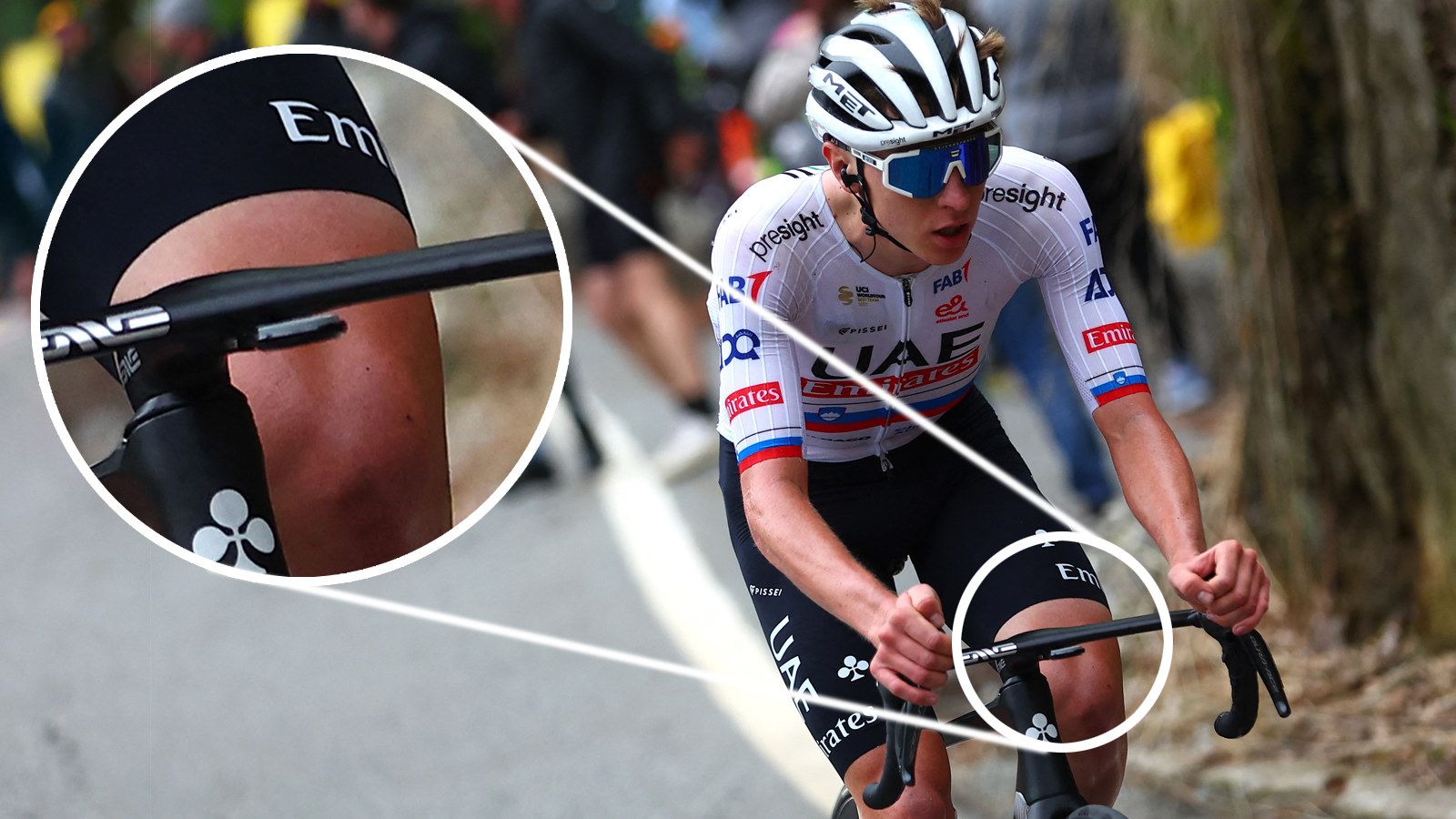
Tadej Pogačar's surge to victory on stage 2 of the Giro d'Italia, teed up by his UAE Team Emirates teammates, was as much a spectacle to watch as it was an expected conclusion to the day, but the circumstances around how the race played out were anything but predictable.
He launched his attack with 4.5km to go, on the steepest part of the climb to Santuario di Oropa, beating Dani Martínez (Bora-Hansgrohe) and Geraint Thomas (Ineos Grenadiers) into 2nd and 3rd place respectively, but what's even more impressive is that he did it without his bike computer, and thus without power and heart rate data. He paced his final effort purely on feel.
The Slovenian race favourite had punctured at the bottom of the climb, which led to a slow-speed crash and forced him to change bikes. Amid the bike swap, his Wahoo computer was left on his original bike.
Speaking about the crash, he explained after the stage that he had hit a pothole, and his front Continental tyre was completely flat. He wanted to stop before the corner, but his team car told him to continue until after. With the flat front tyre, his bike slid out as he rounded the bend, causing him to go down.
The bike change itself was a calm affair. After the crash and a gesture of discontent to his team car, the spare bike was delivered and Pogačar was back on his way with a push. It's unclear whether he simply forgot to grab his computer or didn't want to, but regardless of that, it makes the subsequent victory all the more impressive, and many likened it to Marco Pantani's 1999 victory on the same climb.
With Pogačar on his spare bike, four of his teammates worked to bring him back to the reduced bunch, and Rafal Majka was the last teammate in line to set up his winning attack. But without power data to measure his race-winning effort, the Slovenian was forced to ride purely on feel.
For an effort like that, it's always going to be a case of going as hard as you can until the finish, but many riders would like to keep an eye on the data to pace the effort based on power data, or perhaps even on heart rate. Most pro riders will know how many watts they can sustain for the ensuing duration, and they'd be careful not to go too far beyond it.
A prime example of this comes from Chris Froome, seven-time grand tour winner and former teammate of Pogačar's current Giro d'Italia rival, Geraint Thomas. Froome's various successes have repeatedly involved ignoring accelerations in favour of riding a steady-state effort up a climb, gauged by the numbers on his head unit.
Some riders might even use the computer to know the distance remaining or elevation to come, although most would rely on the team radio to provide this info, as Pogačar no doubt did on this occasion.
Those who remember that final time trial on stage 20 of the 2020 Tour de France will know that this isn't Pogačar's first rodeo without data. On that day, after swapping from the time trial bike to the road bike at the bottom of La Planche des Belles Filles, it was noted that his road bike didn't have a power meter fitted, and so the Slovenian rode entirely on feel there too. It worked for him then, and it worked for him now, so clearly he's not a slave to the numbers on his head unit.
Pundits might have all predicted that Tadej Pogačar was the best rider in the 2024 Giro d'Italia before the race got underway in Turin, but after a few days of racing, it's hard not to get the feeling that he truly believes it himself.
He followed up his stage 2 win with a late attack on stage 3, joined by Geraint Thomas on an otherwise nailed-on sprint stage. Perhaps it was a genuine attempt at taking extra seconds, or perhaps he's just having fun. Either way, he's clearly not playing the conservative energy-saving game we often expect from a GC contender.
The sprinters eventually brought the duo back and Tim Merlier won, but once again, Pogačar managed to grab the headlines on a day when his rivals might have preferred to stay anonymous.







